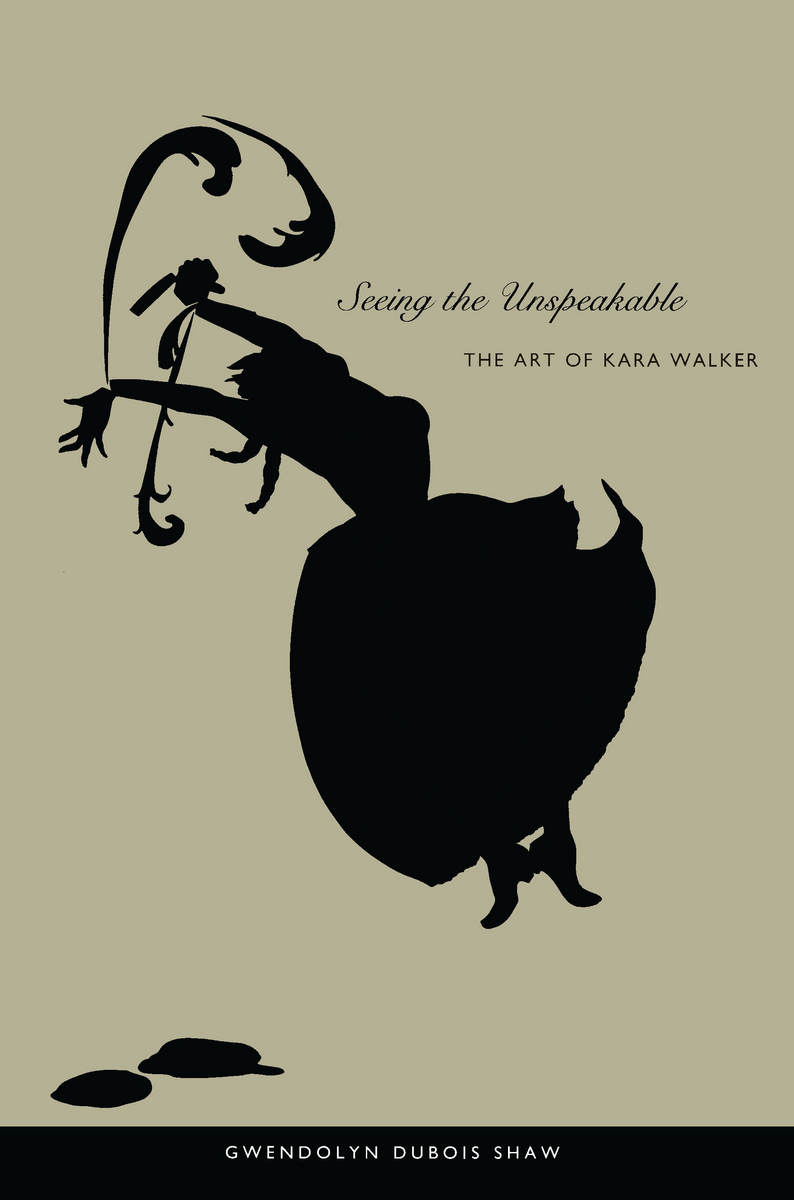
Duke University Press
“As we work like Kara Walker to build a just and post-racist society, this important artist is discussed thoughtfully and appreciatively by a serious scholar in a well-written book.”—Michael R. Mosher, Leonardo Digital Reviews
“Shaw has created a useful and readable text that provides entry points into understanding Walker’s art and the discourses surrounding it. Her excavations of the various aspects of Walker’s work are carefully written and engaging to readers who are familiar with African American history, culture, and art history as well as those who are learning about these sources for the first time through Walker’s art. She has managed to organize a truly unwieldy subject, allowing it to maintain its dynamism while discussing it in a digestible fashion. Seeing the Unspeakable is a fascinating study of Walker’s art and a model for further examinations of the challenge of contemporary art.”—Bridget R. Cooks, CAA Reviews
“[T]his is a measured and always interesting account of what is constantly challenging work.”—Alan Rice, Journal of American Studies
“[A]ppealing and thought provoking. . . . Shaw provides a comprehensive analysis of Walker’s relevance in art history and her place in larger discussions of race and gender in society.”—Jennifer Heusel, Woman’s Art Journal
“[A] rich, careful, and important exploration of one of America’s most significant artists: Kara Walker. . . . Seeing the Unspeakable is especially important for readers interested in how the suppression of African American art history has influenced contemporary artists.”—Christine Hamm, Altar Magazine
"Shaw's 'reading' of [Walker's work] is intriguing and seemingly flawless. . . . Those interested in art history and issues of race and representation will surely find this book rewarding, but possibly unsettling."—KaaVonia Hinton, Foreword
"Shaw's book places [Kara Walker's] work within a larger artistic canon, which contextualizes the significance of her works and the phenomenal artistic talent. . . . [A]ccesible. . . . [E]venhanded. . . ."—Tracey Lewis, Black Issues Book Review

